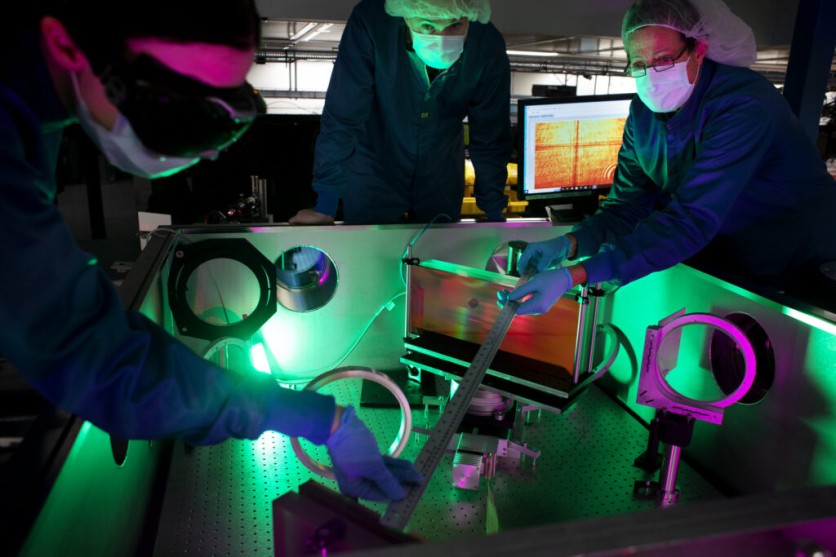This week, scientists will put the finishing touches on the Zetawatt-Equivalent Ultrashort Pulse Laser System (ZEUS) at the University of Michigan, ushering in a new era in high-powered laser experiments, as reported first by New Atlas.
The device, touted as the most potent laser system in the US, will aid researchers in their study of a variety of phenomena, such as quantum physics, space exploration, and cancer therapy.

All About the ZEUS Laser
It is worth noting that the ZEUS laser at the University of Michigan will serve as the replacement for the 0.5-Petawatt Hercules laser, which was used to set the Guinness World Record for the Highest Intensity Focused Laser in 2008.
ZEUS is built to replicate a beam approximately a million times more powerful than its maximum strength of 3 Petawatts by aiming its laser towards a high-energy electron beam traveling in the opposite direction.
This full power operation of ZEUS will imitate a zetawatt laser pulse, allowing researchers to study extreme plasmas and explore quantum electrodynamics.
The tests could result in the generation of matter and antimatter that could explain the origins of some of the cosmos' most fundamental phenomena.
"Magnetars, which are neutron stars with extremely strong magnetic fields around them, and objects like active galactic nuclei surrounded by very hot plasma - we can recreate the microphysics of hot plasma in extremely strong fields in the laboratory," ZEUS' Associate Director Louise Willingale said in a statement.
But that kind of operation is not anticipated to happen soon since n ew X-ray imaging technologies will be studied first using low-power laser pulses of 30 terawatts, but 500 terawatt experiments are scheduled for the local fall before starting zetawatt operations in 2023, which is referred to as ZEUS's signature experiment.
Read also : Researchers Use Infrared Laser Light to Wirelessly Transmit Power Over 98 Feet of Thin Air!
One of the Most Powerful Laser Systems
In addition to helping scientists understand how materials change over very short periods of time, ZEUS is anticipated to contribute to the development of technologies that enhance nuclear weapons detection in shipping materials.
The facility's research could potentially result in more compact and effective particle accelerators that produce radioactive isotopes and proton beams, speeding up the creation of cancer treatments.
Karl Krushelnick, director of the Center for Ultrafast Optical Science, which houses ZEUS, said that it would be among the most powerful laser systems in the world and the highest peak power laser in the US.
The high-repetition target area, which conducts tests with more frequent but lower strength laser pulses, is the first target area of the team to start the system's operation.
Franklin Dollar, a graduate of Michigan who is currently an associate professor of physics and astronomy at the University of California Irvine, is the instrument's first user, and his group is investigating a novel form of X-ray imaging.
They will utilize ZEUS to fire infrared laser pulses into a helium gas target, converting the gas to plasma. By accelerating electrons to high energy, this plasma creates very small X-ray bursts as the electron beams flicker, according to scientists.
Related Article : Laser Coffee? Researchers Create A 'Laser-Powered Extractor' That Pumps Out Cold-Brew 300 Times Faster Than Regular Methods!
This article is owned by Tech Times
Written by Joaquin Victor Tacla
ⓒ 2025 TECHTIMES.com All rights reserved. Do not reproduce without permission.




